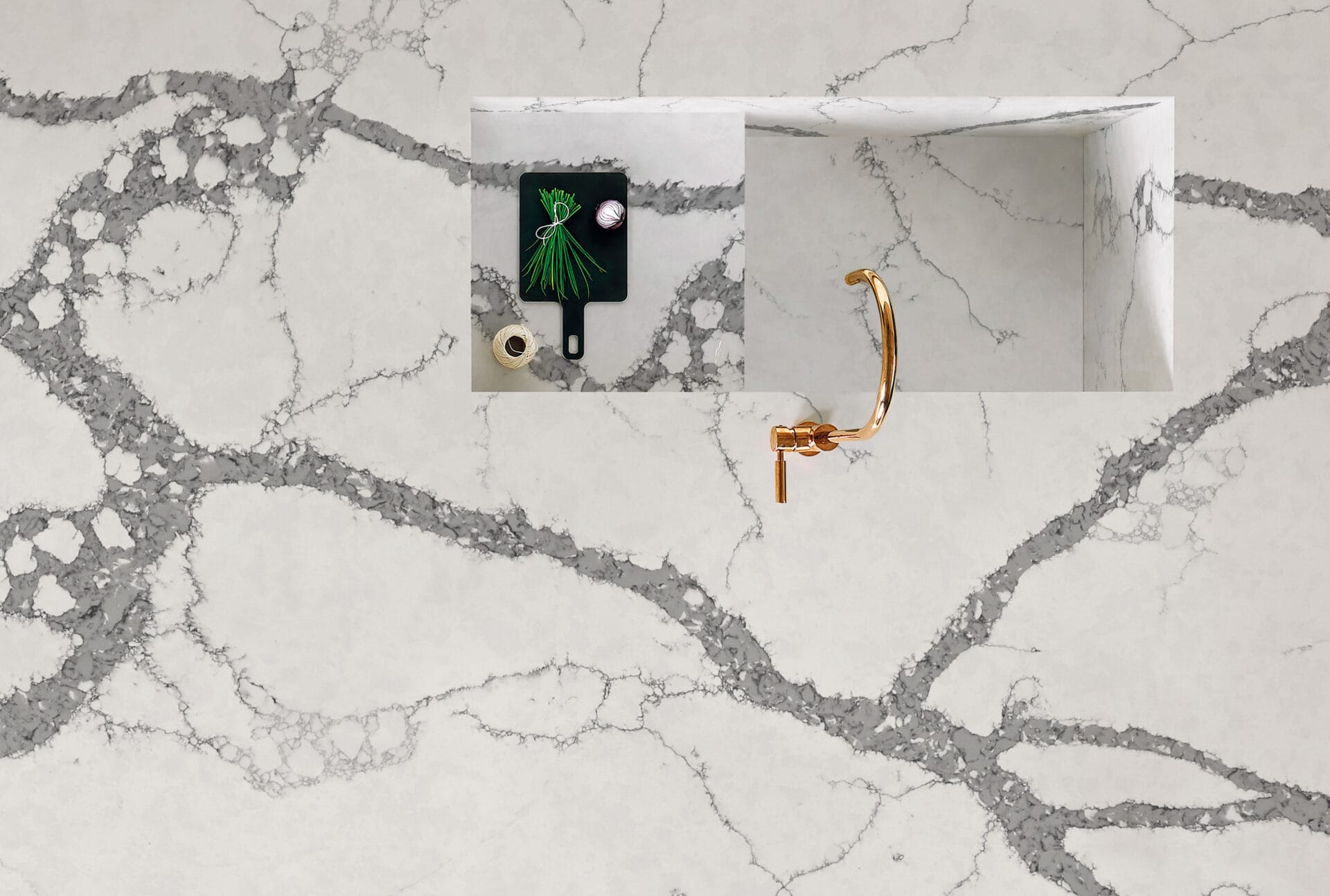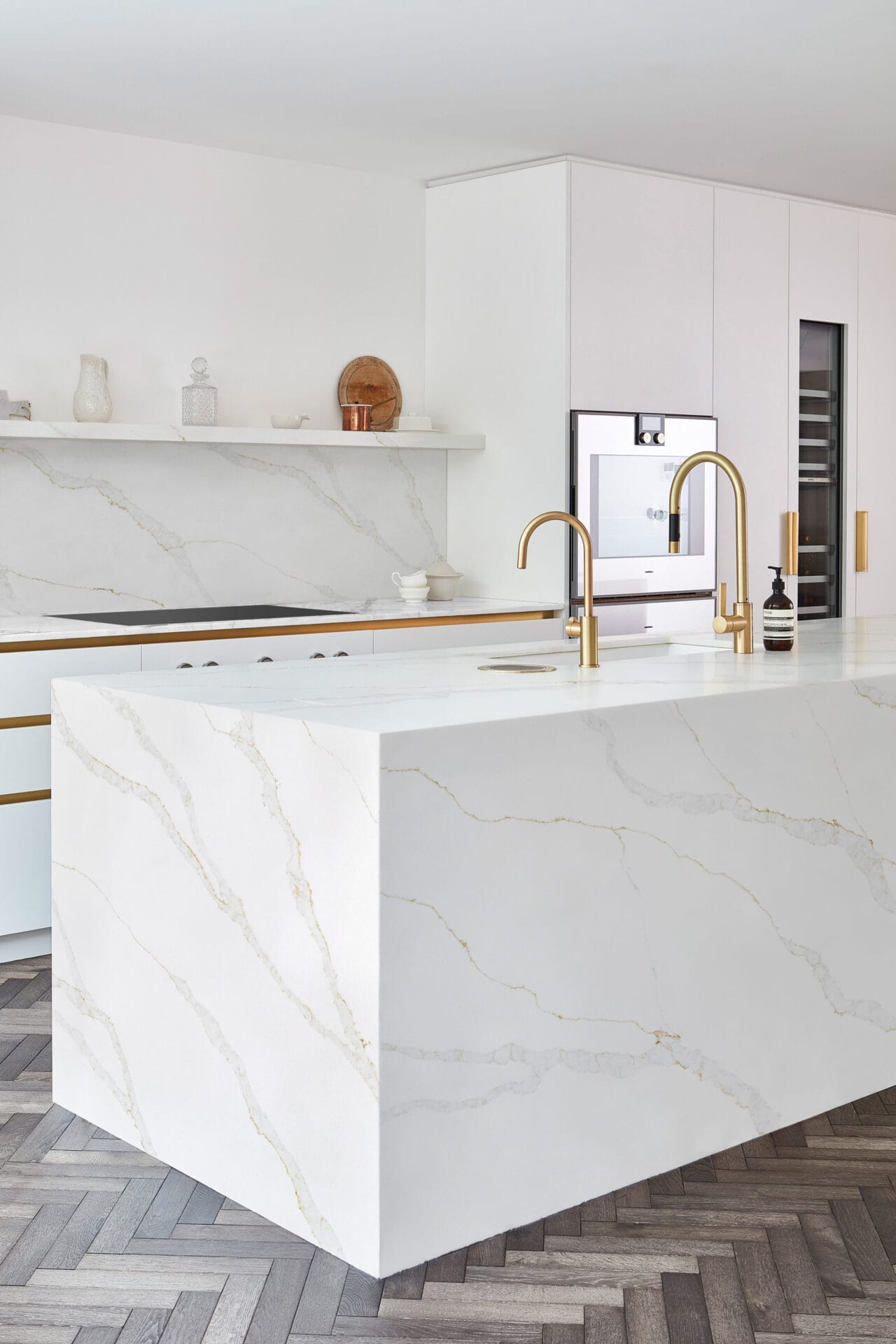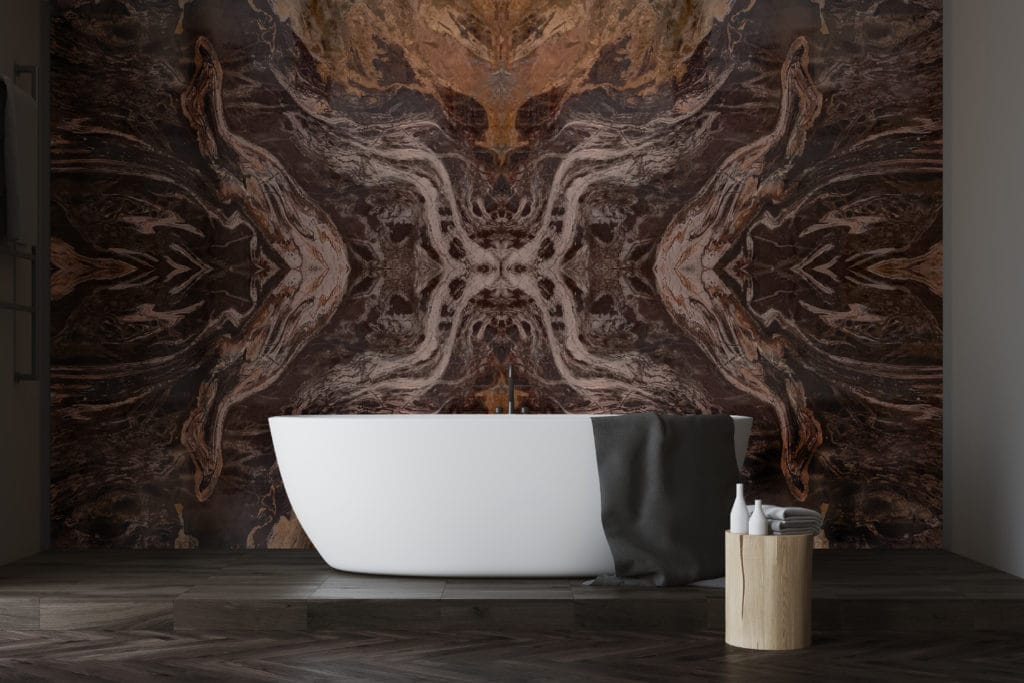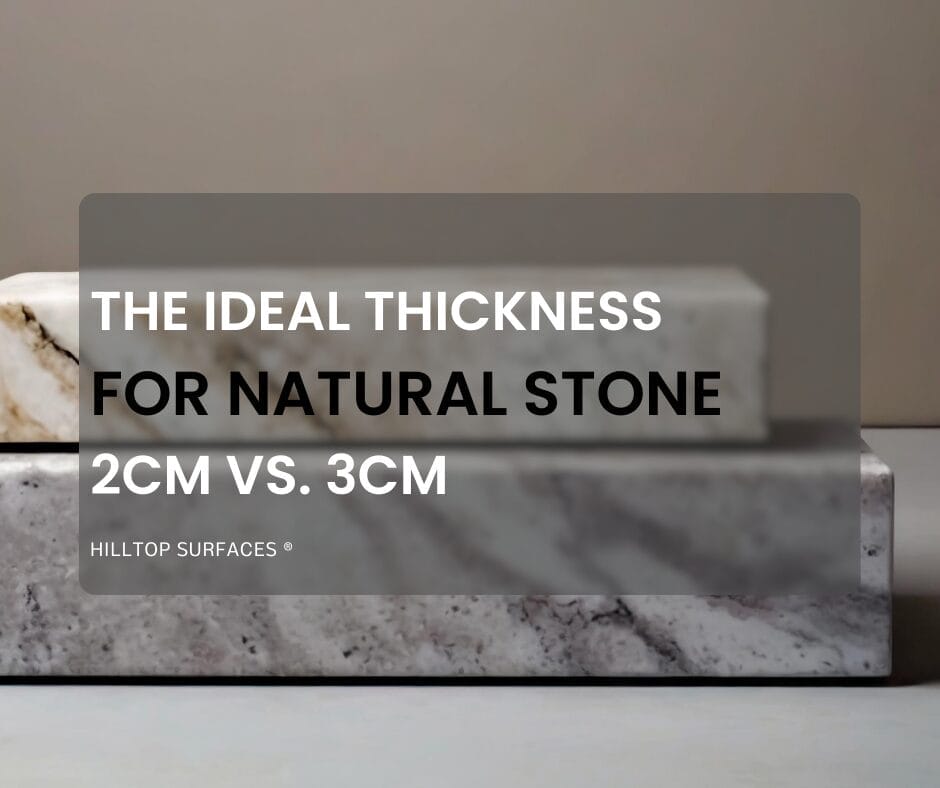The Differences Between Natural Quartz (Quartzite) and Engineered Quartz
We are often asked about the distinctions between natural quartz (quartzite) and engineered quartz. Both are exceptional choices, each with its unique characteristics and applications. In this post, we’ll discuss the intricacies of these two materials, exploring what sets them apart, where they shine, and how to make the best choice for your design aspirations.
What is Natural Quartz (Quartzite)
Natural quartz, commonly known as Quartzite, is a naturally occurring metamorphic rock formed from sandstone and quartz crystals. Quartzite is known for its exquisite veining patterns, natural luster, and durability.
What is Engineered Quartz?
Engineered Quartz is a man-made composite material comprising 90-95% crushed natural quartz crystals mixed with resins, polymers, and pigments. Engineered quartz offers a consistent appearance, making it easier to match slabs for a seamless design.
Natural Quartz vs. Engineered Quartz: Navigating the Differences
Is engineered quartz the same as quartzite?
Quartz, the mineral, serves as the primary ingredient in both natural quartzite and engineered quartz; however, their origins and compositions differ. Quartzite, a 100% Natural Stone, is formed through the metamorphism of sandstone and is composed entirely of minerals. On the other hand, engineered quartz is a man-made blend of crushed quartz and synthetic materials.
Maintenance
While both materials are relatively low-maintenance, quartz requires less upkeep as it is non-porous. Quartzite may need periodic sealing to enhance its resistance against stains and maintain its longevity.
Engineered Quartz Applications
Kitchen Countertops: Engineered quartz is a popular choice for Kitchen Countertops due to its durability, low maintenance, and non-porous nature which makes it resistant to stains, thus ideal for high traffic kitchens.
Bathroom Vanities: Quartz’s resistance to moisture and its easy maintenance make it an excellent option for bathroom vanities. It provides a sleek and consistent appearance, enhancing the overall aesthetic of the space.
Flooring: In areas with moderate foot traffic, engineered quartz can be used for flooring. Its resilience against scratches and stains makes it suitable for spaces where a durable and low-maintenance surface is required.
Feature Walls: Due to its versatility in color and pattern options, quartz is often utilized for feature walls in residential and commercial spaces, adding a touch of sophistication and continuity.
Quartzite Applications
Kitchen Countertops: Quartzite countertops are favored for their natural beauty, unique veining, and resistance to heat. While they require sealing to enhance durability, many homeowners appreciate the authenticity and timeless elegance of natural quartzite in their kitchens.
Outdoor Spaces: Natural quartzite, with its durability and resistance to weathering, can be used for outdoor applications such as patio surfaces and outdoor kitchens. It stands up well to the elements, maintaining its beauty over time.
Feature Walls and Fireplaces: The unique and varied patterns in Quartzite make it an excellent choice for feature walls and fireplace surrounds, adding a captivating focal point to interior spaces.
Is engineered quartz a good countertop?
Engineered Quartz is an excellent choice for Countertops due to its durability, low porosity, resistance to stains, price and low maintenance. It offers a consistent surface that’s less prone to imperfections compared to natural quartzite.
Which is nicer, quartz or quartzite?
The choice between quartz and quartzite often boils down to personal preference. Natural quartzite exhibits unique veining and a natural sheen, while engineered quartz offers consistent patterns and a polished finish. Let your design vision guide you, considering factors like aesthetics, maintenance, and practicality.
Are engineered quartz countertops expensive?
Engineered quartz is generally more cost-effective than natural quartzite. The price difference is influenced by factors such as the rarity of quartzite, fabrication costs, and the brand.
Conclusion
Whether you’re drawn to the organic beauty of Quartzite or the precision-engineered elegance of Quartz, both materials are competent choices thanks to their main ingredient, quartz. Ultimately, the best choice depends on the specific needs, preferences, and application requirements of the homeowner or designer. Each material brings its own set of qualities to enhance different areas of the home. As you navigate this decision-making process, explore the captivating colors and patterns offered by Mars Quartz, where innovation meets sophistication. Your journey to quartz elegance begins here—choose wisely, design boldly, and let the beauty of quartz transform your living spaces.














